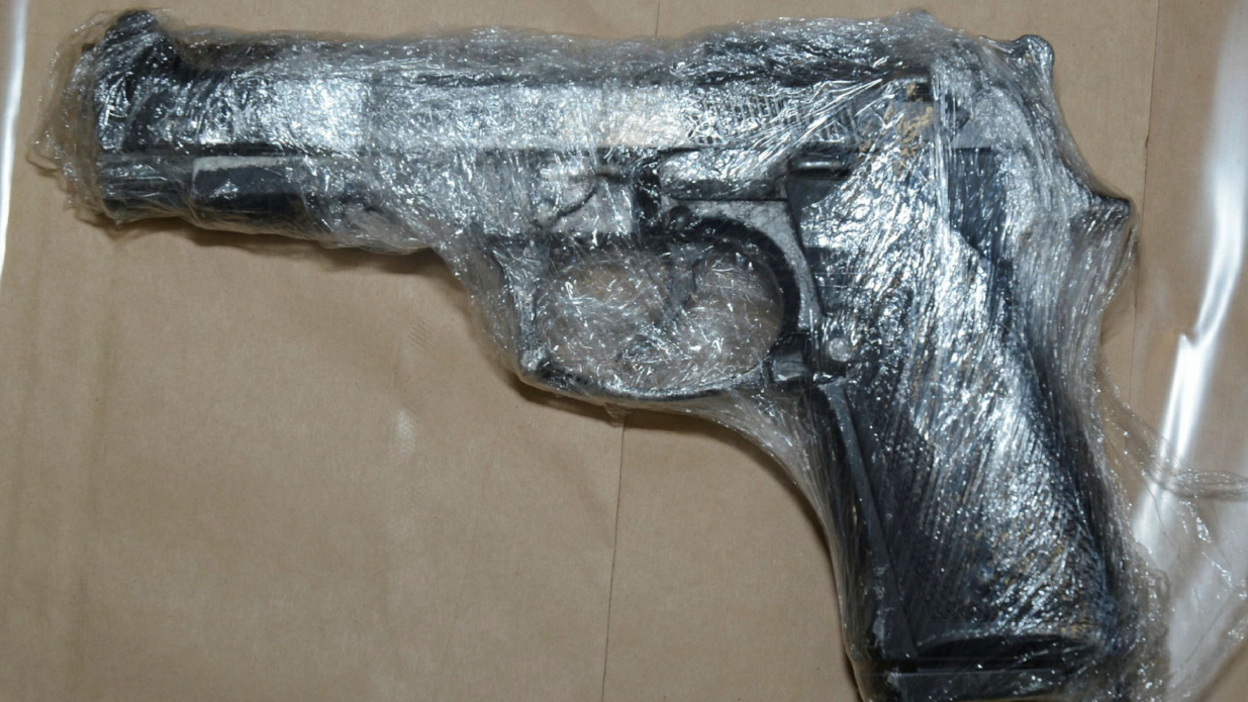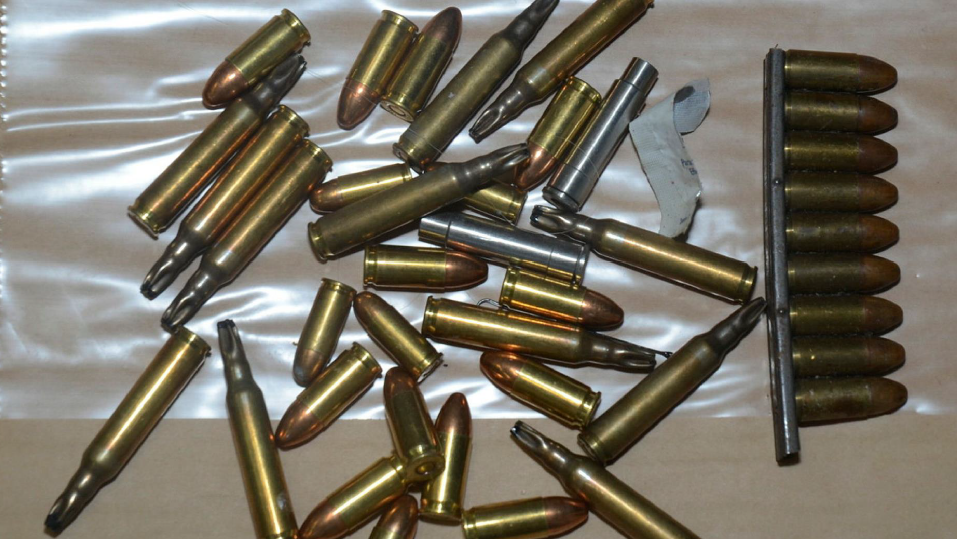Loyalist's firearms prison sentence is doubled

Winston Irvine leaving Belfast Crown Court in March
- Published
The high-profile loyalist Winston Irvine's prison sentence for a range of firearm and ammunition offences is to be doubled, the Court of Appeal has ruled.
Senior judges held that the original two-and-a-half year term imposed on the Belfast man was unduly lenient.
Ordering him to serve five years instead, they backed prosecution submissions that his reputed community and peace building work were wrongly treated as exceptional circumstances.
Lady Chief Justice Dame Siobhan Keegan stated: "It would offend public confidence and frustrate the intention of Parliament if the minimum sentence was not imposed in this case."

The police released a photo of one of the guns they seized from Irvine's car
Irvine, 49, and co-defendant Robin Workman, 54, were arrested following the weapons seizure in June 2022.
Workman transported a quantity of guns and ammunition to the Glencairn area of Belfast in his van, with the haul then transferred to Irvine's Volkswagen Tiguan vehicle.
A short time later police stopped Irvine's vehicle on Disraeli Street.
Two suspected pistols, several magazines and more than 200 rounds of ammunition were discovered inside a holdall in the boot.
During follow-up searches of Irvine's home in Ballysillan Road, officers found UVF-related badges, plaques and a framed photograph.
Earlier this year both defendants admitted possession of a firearm and ammunition in suspicious circumstances and other related weapons charges.
Workman, of Shore Road in Larne, received the statutory sentence of five years imprisonment for the offences at Belfast Crown Court.
But Irvine received a 30-month term, half of which was to be served on licence, after the trial judge identified "exceptional circumstances" based on his contribution to peace building and charity work.

Some of the ammunition that was discovered when officers stopped Irvine in Disraeli Street in June 2022
Character references provided by clergymen and other representatives highlighted his long-term commitment and positive impact on the local community.
Lawyers representing the Public Prosecution Service (PPS) then challenged Irvine's sentence at the Court of Appeal.
A PPS barrister said there were no exceptional circumstances in Irvine's case.
"This was a man of peace and good work, that was his public profile, but there was a private profile where he had (possession) of arms," he said.
The barrister claimed Irvine's crimes were a "gross breach" of the confidence placed in him by those who provided the character references which should have been treated as an aggravating factor.
"It somewhat defies logic that his offences were dealt with in a lesser way," Mr Murphy submitted.
"He has betrayed community trust by the commission of these offences."
A barrister representing Irvine argued that the trial judge had correctly assessed a bundle of letters which praised her client's contribution to society.
"It was exceptional in every sense of the word," she maintained.
'Breach of trust'
On Wednesday, the three appeal judges found that the references only amounted to points of mitigation about Irvine's good character.
"There were no exceptional circumstances regarding the offences which should not be viewed in a vacuum, given the lack of explanation by the defendant about why weapons were found in his car," the Lady Chief Justice said.
"The references point to positives in the defendant's life, including peacemaking and community activities, but they cannot rationally excuse this offending behaviour leading to a sentence below the minimum term.
"The offending was a breach of trust placed in him by the many people with whom he has interacted."
Dame Siobhan confirmed: "We declare that the overall sentence was unduly lenient and replace it with the minimum sentence of five years."
Related topics
- Published20 May

- Published13 June
